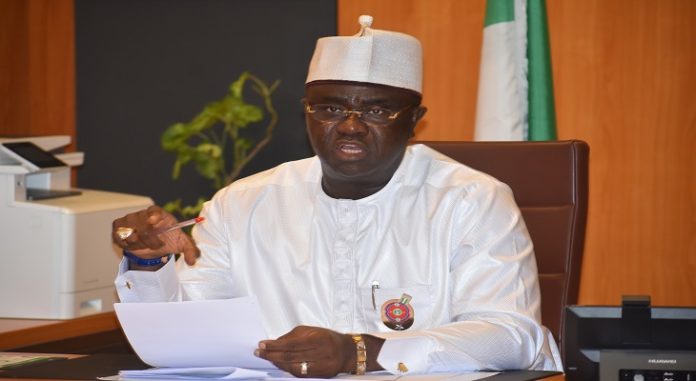
Minister of State, Budget and National Planning, Prince Clem Ikanade Agba, said that high population growth in Nigeria was a matter of concern, stressing that there was need to cater to the rising population by stimulating the economy that engendered growth and created jobs.
The Minister made this assertion recently, in Abuja, while delivering his keynote address at the 23rd conference of the Intergovernmental Committee of Senior Officials and Experts (ICE) for West Africa.
The conference was organized by the government of Nigeria and united nations economic commission for Africa [UNECA] with the theme “maximizing investments to achieve optimum demographic dynamics in West Africa in a Covid-19 era: the imperative of building back better.”
Agba stressed the need to create economic activities that would open up productive sectors and take full advantage of the African Continental Free Trade Area (AFCFTA) agreement.
According to him, “this is against the backdrop that Nigeria’s population is estimated to hit over 411 million by 2050 with 65% of the population under the age of 35.”
He highlighted the need to develop and deploy human capital as well as improve the infrastructure stock for higher productivity and competitiveness, noting that economic prosperity depended on productivity in which human and natural resources were employed.
He acknowledged that to build a competitive private-sector economy that would engender economic prosperity for ECOWAS countries and manage demography, the sub-region needed to put in place the following: (i) a modern well-regulated financial sector that turns savings into productive investments (ii) investment in research, development, innovation and technology (iii) investment in hard and soft infrastructure; sustained encouragement of entrepreneurship and innovation (iv) developed value chains in agriculture and processing of natural resources as well as identify and focus on specific industries for job creation.
According to the minister, “inclusive growth and development must be evident to have meaningful and successful transformational development in our sub-region, which is why the Federal Government of Nigeria has since 2009 kept faith with the development and implementation of her national development plans.
“Current development plans are designed to cover all sectors of the Nigerian economy and address critical aspects of the global, continental and sub-regional agendas, namely the sustainable development goals, au agenda 2063 and the ECOWAS vision.”
Earlier in her welcome remarks, the permanent secretary, Mrs. Olusola Idowu, who was represented by the director, department of macroeconomics, budget and national planning, Mr. David Adeosun, lauded the timely hosting of the conference, stating that it was a proof of federal government’s determination to explore the opportunities inherent in the current situation.
Mrs Idowu further informed that the (ice) was a statutory body and key instrument used by member states to oversee the development and implementation of the UNECA sub-region office’s work programme as well as monitor its activities.
She also explained that the committee provided guidance and direction by ensuring that sub-regional priorities were addressed as much as possible.
In his remarks, the representative of the government of republic of Niger, her excellency, Madam Aichatou Kane, expressed the need for West African countries to take full responsibility for curbing the effects of the Covid-19 pandemic.
She disclosed that Niger was undertaking a social integrated project with a view to mobilising necessary efforts to cope with the pandemic.
Kane charged all countries of ECOWAS to pay attention to their economic dividend and quality of education as they were very important and essential to employment and wealth creation.




